Where will the zero-Covid policy and Xi's third term lead China?
China's strict zero-Covid policy has led to lockdowns and other extreme measures in various cities, as local officials follow directions from the top. However, the people are pushing back, as their daily life is impacted in all sorts of ways. Chinese commentator Ma Haotian believes that the decision makers are caught between a rock and a hard place as either maintaining or easing the strict zero-Covid measures comes with painful consequences.
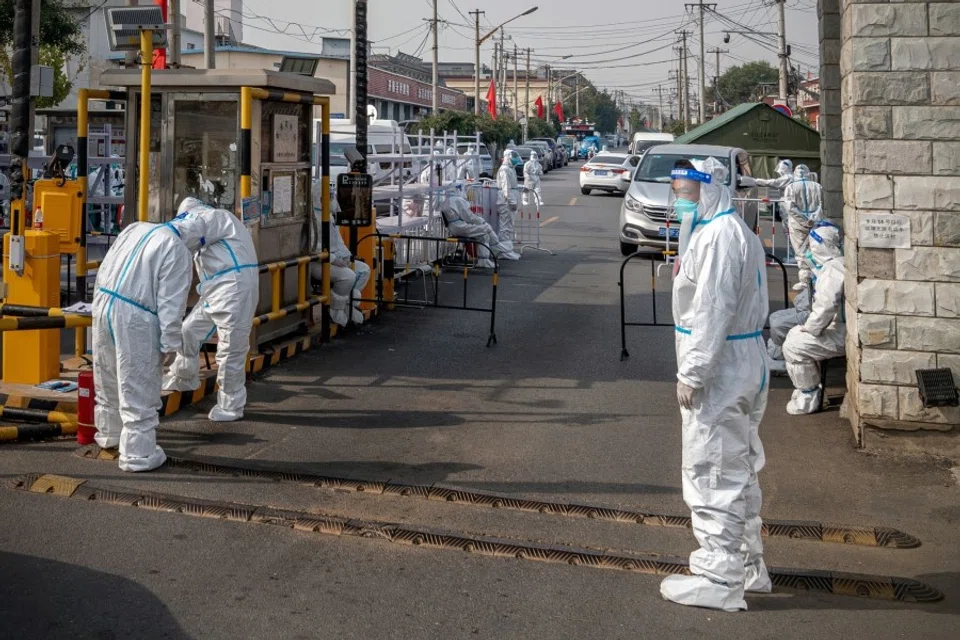
In the past ten years, I have never seen so much pain and struggle for the people nor in such concentration. China's provinces and cities such as Hainan, Tibet, Xinjiang, Sichuan, Guizhou and Guangdong are successively entering various states of lockdown. The Chinese people have to put up with the farce of pandemic control, including the "silent" and "static" management, as well as numerous campaigns organised against "unnecessary" outings and gatherings that restrict their movements.
When even basic needs are taken away, one can imagine how disappointed and angry people are, especially with the pandemic policies.
Dissatisfaction with zero-Covid
Most Chinese people have no political expectations, as voting rights are limited to National People's Congress (NPC) representatives at county and district levels - of which the candidates are selected internally - and their village or residents' committees. People can vote for old Mr Zhang in their village, or the unfamiliar Mr Wang who works in the county government - neither would have any impact on China's political situation.
Most people are more interested in matters of their livelihood, such as their three meals, children's education, and parents' medical treatment. But due to extreme pandemic controls, people have been retrenched or had their work suspended; children attend online lessons instead of going to school; hospitals cite pandemic controls to turn patients away; people are deprived of the right to even go downstairs for fresh air; buying food and household items has become a race of who hits the "pay" button on the mobile app first and who can make the highest bid for ridiculously marked-up goods.
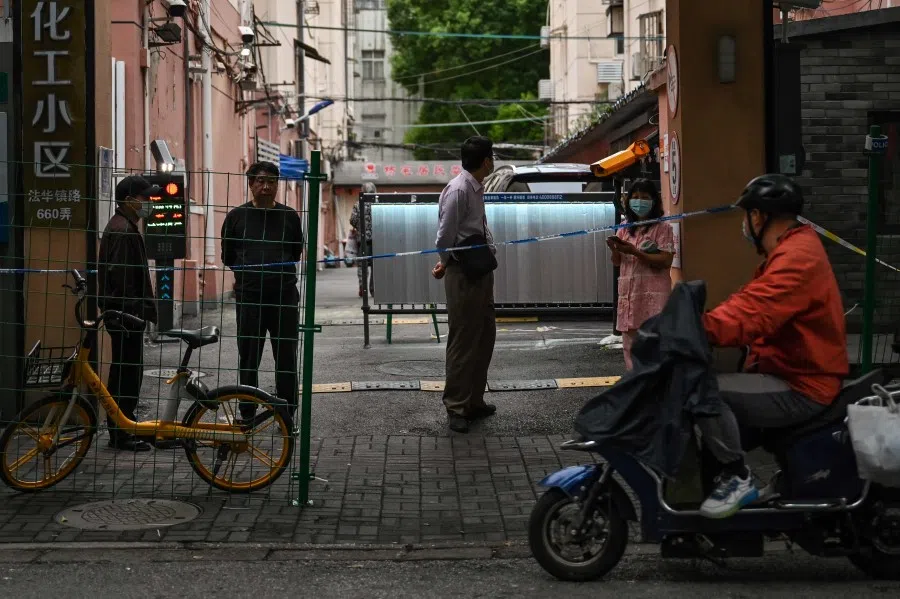
When even basic needs are taken away, one can imagine how disappointed and angry people are, especially with the pandemic policies.
From Jilin to Shanghai, then Guiyang and Ili, unending scenes of woe due to pandemic controls have come out of China this year. People have shouted and clanged pots in their residential communities, spoken out on the internet, had shoving matches with personnel at lockdown checkpoints, and argued over the rules and sensibilities of pandemic control measures with those in charge.
It has been 44 years since China began its reform and opening up in 1978. Apart from Jiang Zemin's reappointment as the Chinese Communist Party (CCP)'s general secretary for three more years due to the 1989 crisis, no other CCP general secretary and Chinese president has been in office for more than two terms or ten years.
In February 2018, Xinhua reported on the removal of the presidential term limit, sparking a furore. Today, the long-term appointment of the same CCP general secretary will soon become reality. China's direction has become even more unpredictable given Xi's reappointment and the controversy over his zero-Covid policy.
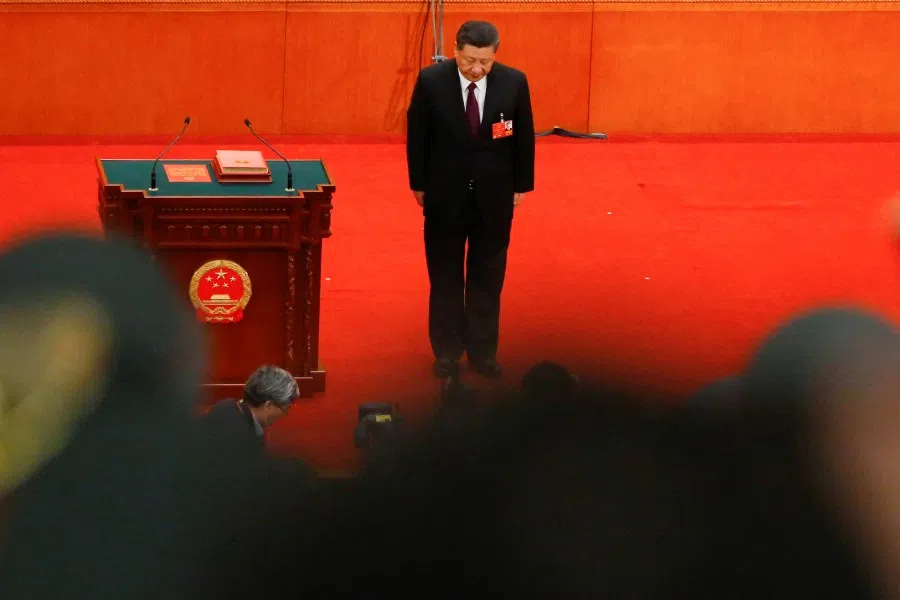
On 17 March this year, at the CCP Politburo Standing Committee meeting, Xi set the tone for the widespread controls for the Omicron wave: "Determination is victory."
At the time, the wave in Shanghai was just beginning, with just 200 to 300 daily new cases. Unbeknown then, the wave would later infect 650,000 people, and normal life would resume only in early June. From 10 to 13 April, Xi visited Hainan and reiterated that "determination is victory", which even today has become the administrative basis for local officials in implementing extreme zero-Covid controls.
From an anthropological perspective, political narratives do not just consist of the "great traditions" of the imperial courts, but also the "little traditions" of the ordinary people. While to outsiders China's politics look like an iron plate with the party and government melded as one, many are still aware that there are divisions such as between the zero-Covid camp led by Xi and the economic stability camp led by Chinese Premier Li Keqiang. The people's unhappiness with the pandemic controls naturally has a clear target.
After the 19th Party Congress in 2017, Xi has been moulded into an unshakeable "core" of the CCP, and it is taboo for the Chinese to discuss this top leader on the internet.
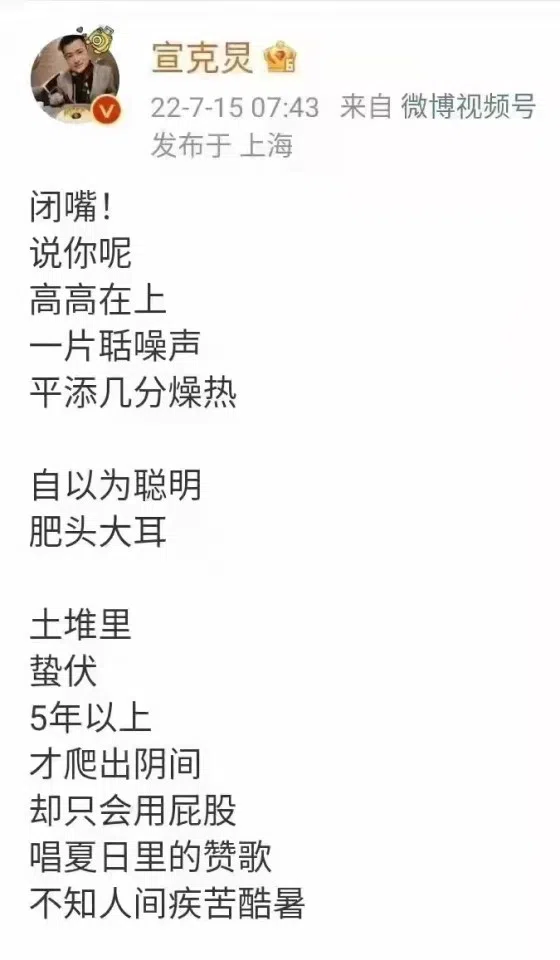
On 15 July this year, a journalist in Shanghai posted on Weibo a modern poem called《致知了》("To 'Cicada'") , written on a morning run. The poem describes cicadas as "high and mighty" and "think they are clever". While the writer claims that there is no hidden connotation, the poem gained attention among the public and media.
After the 19th Party Congress in 2017, Xi has been moulded into an unshakeable "core" of the CCP, and it is taboo for the Chinese to discuss this top leader on the internet. From the journalist's poem to the restriction of the word 翠 (cui, emerald; due to the character's structure, it could be interpreted as cursing Xi to die), and in every corner of China's internet, people are not holding back in expressing their dissatisfaction with "him", whether overtly or covertly.
It has broadcast the number of Covid-19 cases (as well as monkeypox cases since its outbreak) and deaths in the US every night for over two years since mid-March 2020 to contrast the level of efficiency in China's and the US's anti-Covid policies.
Not resilient enough
In today's China, alongside those under or are against lockdowns, there is a massive group of people who support lockdowns, mainly the middle-aged and elderly. Their opinions are largely influenced by China's propaganda machine.
Furthermore, their impression of the coronavirus is stuck at the beginning of the outbreak when it was still this terrible and deadly virus that had to be controlled with the Chinese government's swift, harsh and unified anti-Covid measures. These people love to say, "Look how many people died in the US!" and "China still does a far better job than everyone else in fighting Covid-19!"
CCTV's daily evening news programme Xinwen Lianbo is the mouthpiece of the CCP and the Chinese government. It has broadcast the number of Covid-19 cases (as well as monkeypox cases since its outbreak) and deaths in the US every night for over two years since mid-March 2020 to contrast the level of efficiency in China's and the US's anti-Covid policies.
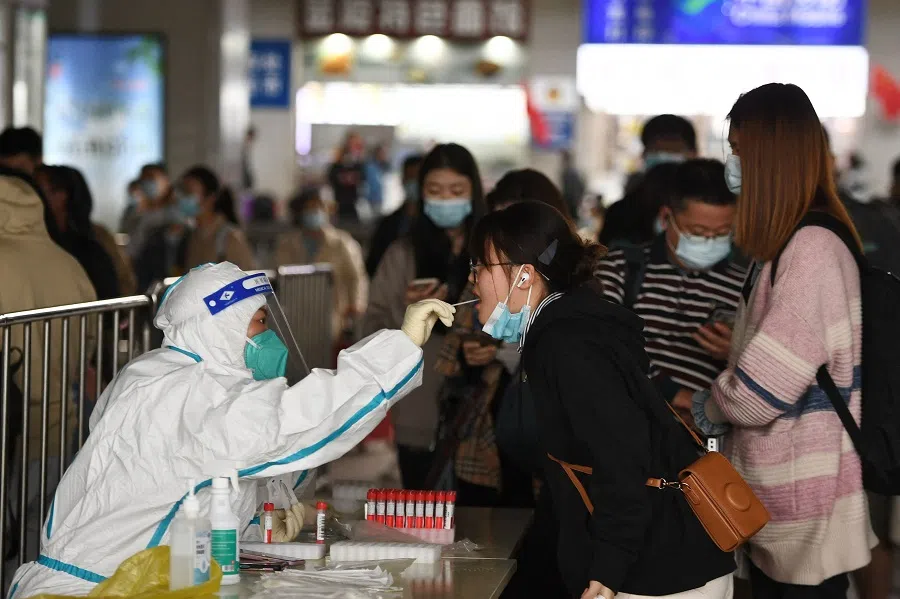
Xinwen Lianbo has a viewership of 34.83% and is adored by the middle-aged, elderly and rural communities, who religiously watch the programme during dinnertime.
Before 2022, China established an outstanding reputation given its successful control of the first wave of outbreaks with its efficient zero-Covid policy. But in the face of the new Omicron variant, the same success became difficult to replicate.
If the country continues with its zero-Covid policy, local governments would be left scrambling to control the recurrent Covid-19 outbreaks, and repeated lockdowns would stunt economic growth. On the other hand, if China relaxes its anti-Covid measures and this leads to a large-scale outbreak in the country, those influenced by propaganda would be terrified and condemn the CCP for not standing its ground with its zero-Covid measures.
Thus, whether China maintains its zero-Covid policy or eases anti-epidemic measures, its credibility would be lost all the same. China's decision-makers will have to bear the consequences of their decisions.
Since the CCP wants to take all social matters into its own hands, it will have to bear the blame if mistakes occur.
As Mao Zedong once put it in 1962 and 1973, and Xi recently reiterated with his political left turn, "Party, government, military, civilian and academic; east, west, south, north and centre, the party leads everything." With great power comes great responsibility; in other words, uneasy lies the head that wears the crown.
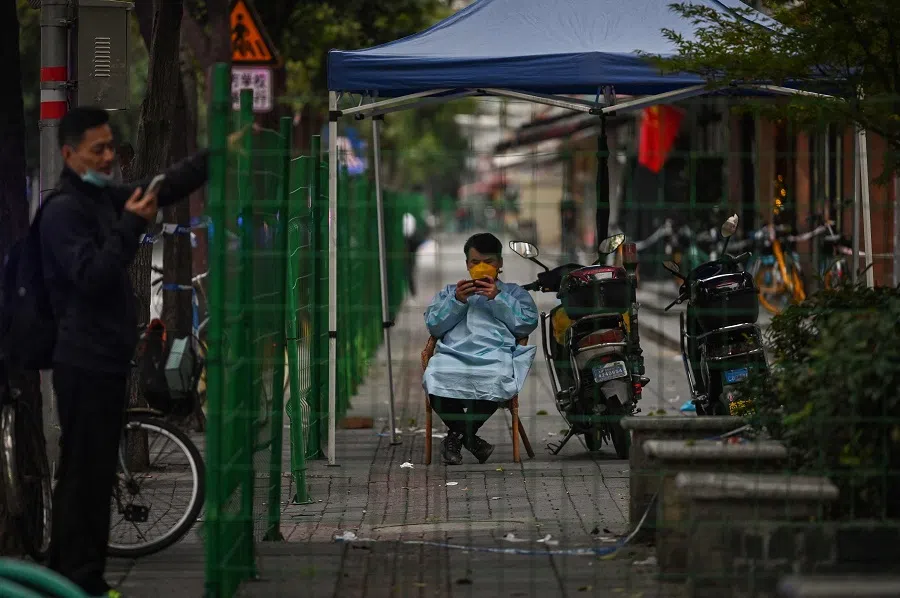
Since the CCP wants to take all social matters into its own hands, it will have to bear the blame if mistakes occur. Every mistake will also be unbearable for the CCP, which claims to be "great, glorious, and correct".
Where is China headed?
For the people in 2012 that had pinned their hopes on the newly installed leadership to implement China's political liberalisation and democratisation reform, their hopes would now be completely crushed in 2022.
A change in leadership usually entails a shift and adjustment of some radical policies, which is also the reason why Deng Xiaoping imposed a term limit on China's presidency in the 1980s. As Xi is set to remain as the country's top leader after the 20th Party Congress, various observers, including Goldman Sachs, predict that the zero-Covid policy will remain.
The People's Republic of China celebrated its 70th founding anniversary on 1 October 2019. That night, a celebration was held in Beijing and people flooded Zhushi Kou Street, south of Tiananmen Square. Fireworks that spelt out "人民万岁" (long live the people) suddenly went off above Tiananmen Square, prompting the people to cheer, "Long live the people!"
Where will China's persistent zero-Covid policy and Xi's third term lead China?
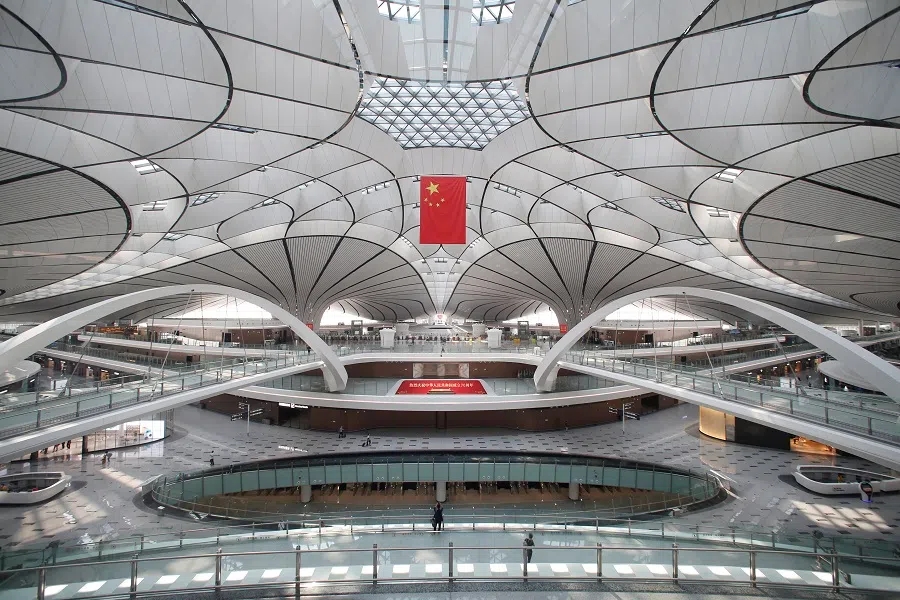
Around the same time, I visited the new Beijing Daxing International Airport, located 46 km south of downtown Beijing. It was a massive structure with an innovative architectural style. Indeed, everything seemed promising in China at the time.
Thinking back now, it feels as if the normal life we used to enjoy was a lifetime ago. China's political system is able to "do great things with concentrated power" (集中力量干大事) in times of stability, but it also adamantly persists on the same path in times of crises, lacking enough resilience and trapping itself between a rock and a hard place.
The people's commune and the Great Leap Forward campaigns led by the long-ruling Mao resulted in the tumultuous decade-long Cultural Revolution. Where will China's persistent zero-Covid policy and Xi's third term lead China?
Former Singapore ambassador to the US Chan Heng Chee once warned that China and the US are "sleepwalking towards a major conflict" over Taiwan. The description "sleepwalking" is extremely poetic and perfectly describes the collective unconscious state. As China maintains its zero-Covid policy and adopts a decision-making model of one person with the final say, where is it "sleepwalking" towards?
Related: China's exorbitant cost of zero-Covid | Escape from Shanghai: The sorry state this megacity finds itself in | A Singaporean in China: How Covid brings out the worst in people | A Singaporean in China: Contact tracing lays bare the lives of ordinary Chinese | PCR testing is big business in China. But who will bear the cost? | Reflecting on two months of lockdown in Shanghai
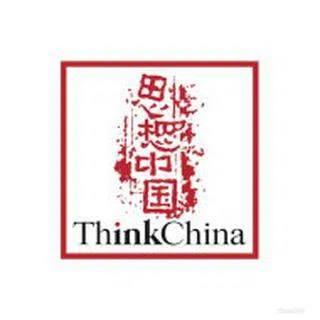
![[Big read] Paying for pleasure: Chinese women indulge in handsome male hosts](https://cassette.sphdigital.com.sg/image/thinkchina/c2cf352c4d2ed7e9531e3525a2bd965a52dc4e85ccc026bc16515baab02389ab)

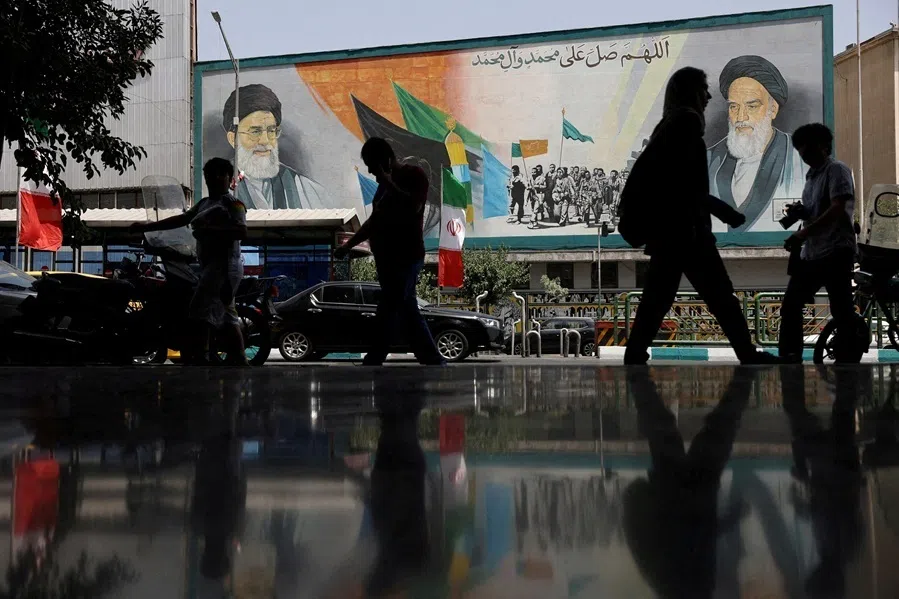
![[Big read] How UOB’s Wee Ee Cheong masters the long game](https://cassette.sphdigital.com.sg/image/thinkchina/1da0b19a41e4358790304b9f3e83f9596de84096a490ca05b36f58134ae9e8f1)
